April 10 - 23 2016: Issue 259
UNSW Island Innovation Lab supporting Kiribati: You Can Help Too!
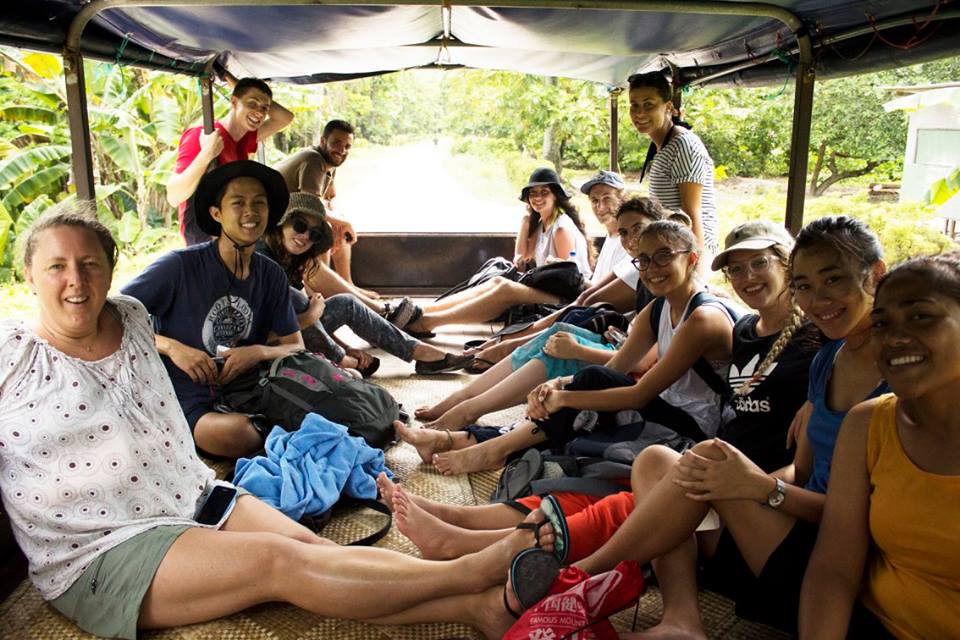
UNSW Island Innovation Lab supporting Kiribati
Many will remember the OnIslands: Creative Collaboration Public Arts Festival of 2014 at Eramboo, curated by Councillor Selena Grifith, which included an exhibition of site specific collaborative art works and installations, where Artists, Designers, Musicians, Performers, Photographers, Architects, Writers, Poets and Filmmakers responded to the theme 'OnIslands’ extending their practice and the viewers’ imagination.
2014 was also the year UNSW Art & Design Senior Lecturer Selena Griffith’s and artist Paul Miller’s Island Innovation Lab project was acknowledged by the Challenge Review Committee of the Buckminster Fuller Institute as making an important contribution to the growing field of whole systems design and was selected for inclusion in their Catalyst Program.
The Island Innovation Lab creates a space where people with diverse skills and interests come together to innovate creative and multidisciplinary responses to issues such as climate change, sea level rise, food security and renewable energy.
Anyone who knows Selena knows her approach is in action, very hands on, and that she likes to hear from all voices and thoughts, believing like most of us that a mix of everyone from every background and profession contributing which makes collaborations produce something that’s innovative and adds new dimensions through others perceptions.
Recently, as part of the New Columbo Plan funded course and Island Innovation Lab project, Cr. Griffith took a group of 12 University of NSW students to the islands of Bikati and Kiebu to experience Kiribati’s diversity and understand the challenges its communities face with respect to human induced climate change. The students learnt ethnographic research skills in an intense immersive mode, engaged with local communities, and were tasked with identifying a project to work on and deliver a socially innovative, cross disciplinary solution to that project.
One of the projects the students are delivering as a result is fundraising $2000 to help the two local schools to buy pencils, school books and other resources etc and they need to collect cotton summer clothes for adults and kids and wet weather gear for the fishermen – old yachties gear will be most welcome!, as will donations of new, coloured pencils, crayons, wooden blocks, exercise books, colouring books, craft materials, glue, scissors, paint, red and white cotton fabric to make uniforms. Also new or used reading books - preschool to teens.
“Kiribati is an island nation covering a vast area almost the size of our own country, Australia. “ Selelna explained, “It includes the Gilbert, Pheonix and Line Islands. As the tiny islands are all low lying, their water supply is affected badly by changing (drier) weather conditions and sea level rise from human induced climate change.
“We visited Tarawa, Butaritari, Bikati, Kiebu and Makin Islands. We were very fortunate to be accepted into the Bikati and Kiebu communities as 'family' and have been asked by the communities to help them out a bit.
“These communities live a very basic subsistence life in small villages of about 300 - 500. They fish, grow crops, build their houses out of coconut palms, pandanus leaves and things that wash up on their island from the sea. They are very happy but really desire that their kids get access to education (see pics below of the two schools we visited).
Below is a list of items they need. If you have any you can donate please contact me (email: selena.griffith@unsw.edu.au or 0481 000 369 )and we can arrange to collect from you. All items need to be in good order, clean and usable - these people have no means of dealing with waste so it is important not to send anything that will create more harm than good."
1. Cotton summer weight clothing - all sizes - babies, kids, women, men - shirts, shorts, dresses and also Bras and Undies. Cotton is important as it is cool, dries easily and can be composted at end of life.
2. Wet weather jackets - the men need weatherproof jackets to go fishing in at night. If you have any in large sizes they would be delighted to have them.
3. Reading books for preschoolers through to year 7 kids. The schools we visited are really desperate for reading books suitable for kids aged 3 - 14. All the kids learn both Kiribati and English at school and reading in English is very helpful for them but there is no library of books for them to use.
4. Wooden Blocks for the pre schoolers and other wooden learning toys. - no plastic please.
5. Cotton over the shoulder bags - like the ones you take shopping - if we could collect 150 of these we have enough for each kid to have a school bag that can biodegrade. All they carry is their exercise book and a pencil, and hopefully a reading book in the near future!
6. Sports equipment - footballs - soccer balls -
7. If you want to make a donation there are some things we need to buy - 100m of white cotton fabric, 100m red cotton fabric, sewing machine needles, thread, staples, coloured and led pencils, chalk, crayons, paper, exercise books, glue, craft supplies. Two of our students are making an ABC colouring book specifically for the kids on the islands with items that make sense to them eg A is for Ant , B is for Basket, C is for Crab because you just don't find apples, bears or cars in the outer islands of Kiribati. We need to print these.
Thank in advance for your help.
Selena.
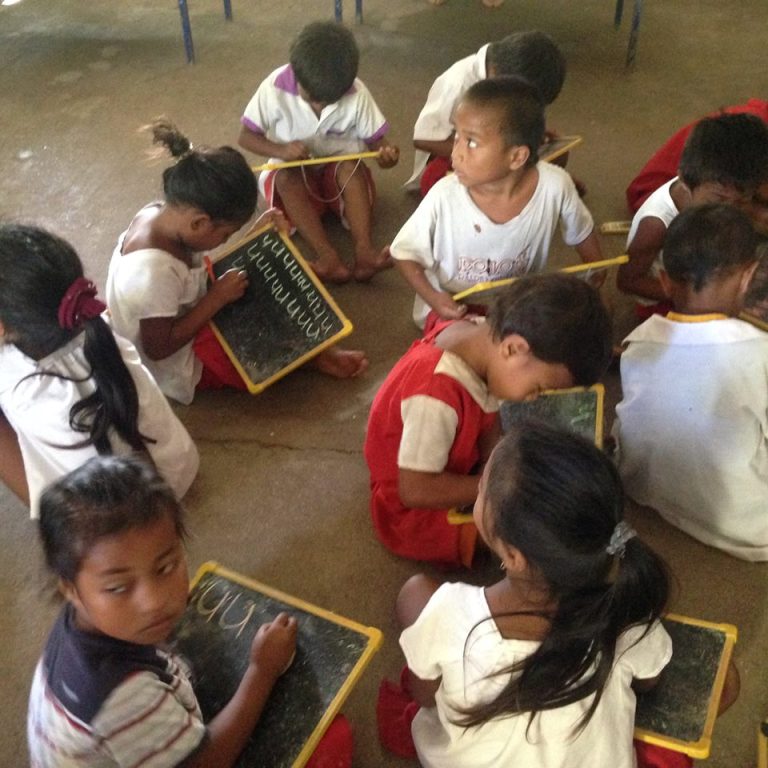
_____________________________________
The UNSW’s Leilah Schubert wrote this piece on the student’s and Selena’s trip (published UNSW Newsroom, 29 March 2016):
An enterprising group of students has swapped the classroom for the tiny, remote nation of Kiribati to help find solutions to climate change challenges facing island communities.
The UNSW ‘Island Innovation Lab’ brought together 12 students from a diverse range of disciplines including Architecture, Fine Arts, Commerce, Engineering, International Studies, Law and Medicine with support from the New Colombo Plan, a federal government initiative to strengthen ties with the Indo-Pacific by supporting study in the region.
“The aim was to enable students to experience first-hand the challenges facing the people of Kiribati and to consider innovative and multidisciplinary responses to these issues,” says project organiser Selena Griffith.
The students conducted discipline-specific research projects prior to the 10-day trip in areas such as food and water security, health, energy, the environment and social entrepreneurship.
Sarita Hales, who is studying a Bachelor of Arts with a double major in Asian Studies and Development Studies, says she was keen to take part in the lab "to learn about climate change and its impact on communities, particularly those already vulnerable due to poverty".
“I wanted go to Kiribati to see and hear first-hand about the social impacts, and apply what I’ve learned in development studies to consider ways in which communities can adapt,” she says.
Second-year medical student Erica Longhurst says she wanted to learn more about the health effects of climate change on developing communities, particularly mental health.
“Despite the fact that mental health is incredibly important, I feel that this is a concern that is not always voiced because it is not really ‘in our face’,” she says.
To reach the remote Pacific nation, the students first flew to Fiji, staying overnight in Nandi, and then to Tarawa, the capital of Kiribati. News of their visit made the local newspapers and radio station.
Acting High Commissioner to Kiribati Michael Hunt held a reception for the group at the Australian High Commission in Tarawa, attended by Kiribati Secretary for Foreign Affairs and Immigration Akka Rimon.
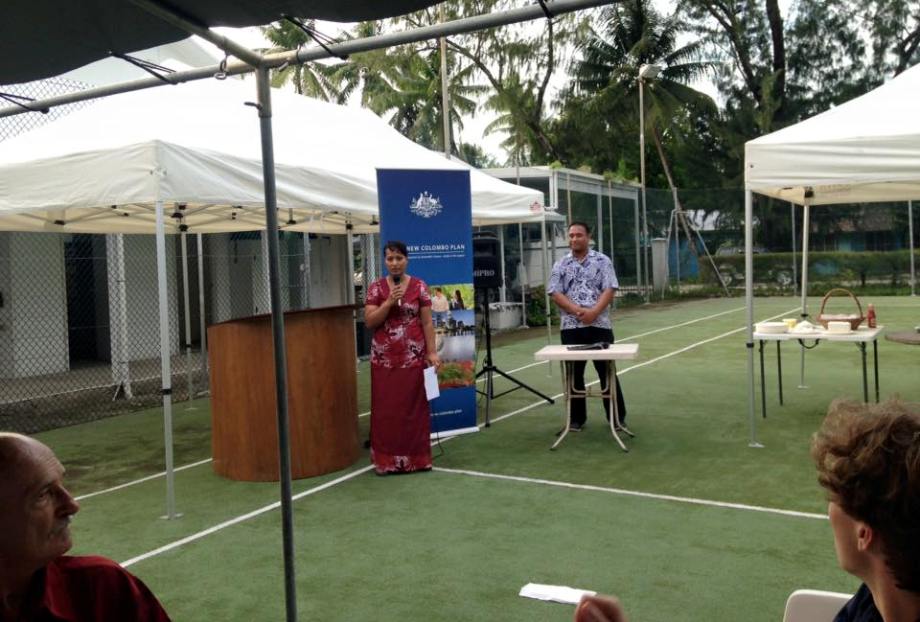
Kiribati Secretary for Foreign Affairs and Immigration welcomes us to her Large Island State - She rightly pointed out that Kiribati is the custodian of many important global resources including some of the most pristine ocean in the world, amongst which its many Islands sit.
“The students were warmly encouraged to be not only Australian ambassadors in Kiribati but also to be ambassadors and advocates for Kiribati on their return to Australia,” says Griffith, who is a senior lecturer and Scientia Experience Director at UNSW Engineering.
Travelling to Kiribati's outer island communities of Butaritari, Bikati, Keibu and Makin involved a variety of transport modes including a twin-hull catamaran, small boats and a light plane.
“We were welcomed into villages like we were family, taught how to weave mats, collect and cook food like crabs and beach worms, as well as collect water from underground wells,” says Griffith.
Hales says seeing the effects of climate change on the outer islands made the biggest impact.
“Looking at erosion caused by climate change, seeing crops of taro damaged due to salt water intrusion, and listening to the community talk about how the water in their wells will soon be undrinkable, changed the way I think about climate change.
“Climate change for me is no longer just another topic, it is a real issue impacting people I have met,” says Hales.
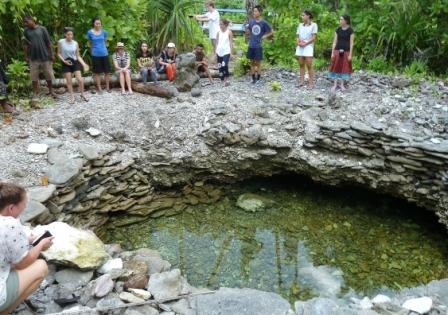
Groundwater is becoming brackish due to salt water intrusion.
Griffith says she saw the perspective of every student change through their experience.
“Being in the location and bearing witness is very different from reading a clinical, analytic report that someone else has written,” she says.
Medical student Erica Longhurst says she discovered that modern society has much to learn from the resilience of the people of Kiribati.
“I found that it is possible to live both happily and sustainably. It is possible to feel more connected with other people even when you are in one of the most isolated places on earth,” says Longhurst.
The students visited a local primary school in Kiribati.
Work with Kiribati under the Island Innovation Lab program will be ongoing, with the students currently developing strategies to co-design and deliver social enterprises to fund renewable energy projects, school supplies and domestic violence resources.
“I plan to partner with organisations in Australia who are already advocating on behalf of communities impacted by climate change. I want to tell the stories of the people I met in order to prevent further damage from occurring,” says Hales.
The students will share their experiences at an event at the Michael Crouch Innovation Centre, which they hope will open up opportunities for collaboration on their projects. Details will be posted on the Island Innovation Lab Facebook page.
A second group of UNSW students will take part in an ‘Island Innovation Lab’ in Palau in July, for which applications are now open, also under the New Colombo Plan program. The students have been invited to speak to Palau’s parliament.
__________________________________
The Republic of Kiribati is one of the four atoll nations in the world, namely Kiribati, the Maldives, Marshall Islands and Tuvalu. Kiribati comprises 33 atolls and reef islands and one raised coral island; Banaba. They have a total land area of 800 square kilometres (310 sq mi) and are dispersed over 3.5 million square kilometres (1,351,000 square miles), and straddle the equator and the 180th meridian, although the International Date Line is indented to bring the Line Islands in the same day as the Kiribati Islands. The permanent population is just over 100,000 (2011), half of whom live on Tarawa Atoll.
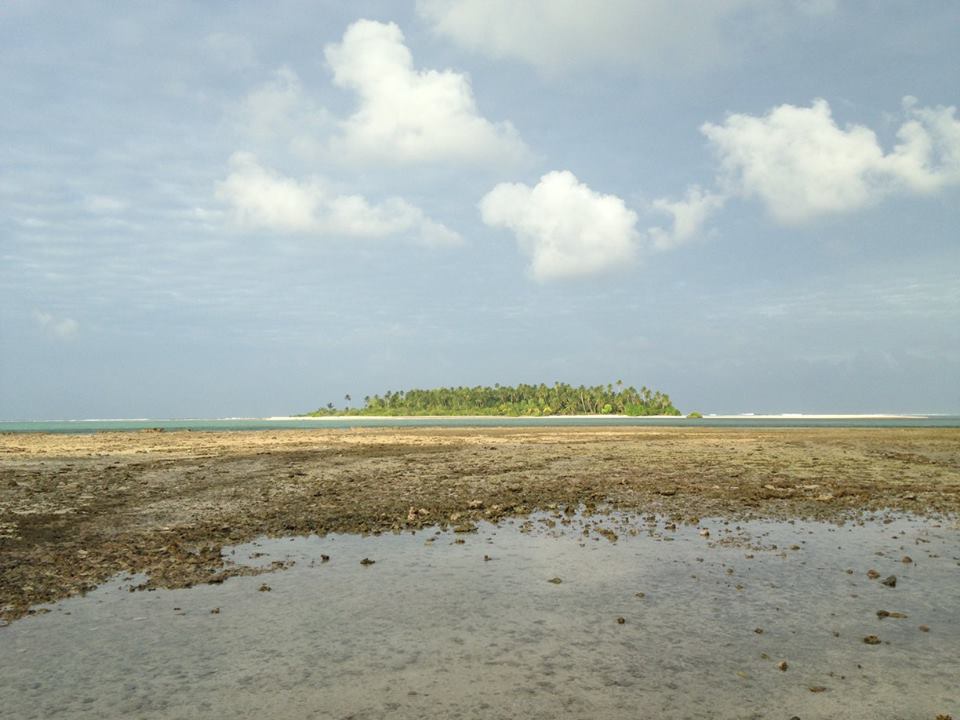
The little islet above Bikati
What the Students had to say about their experience:
Shaddy:
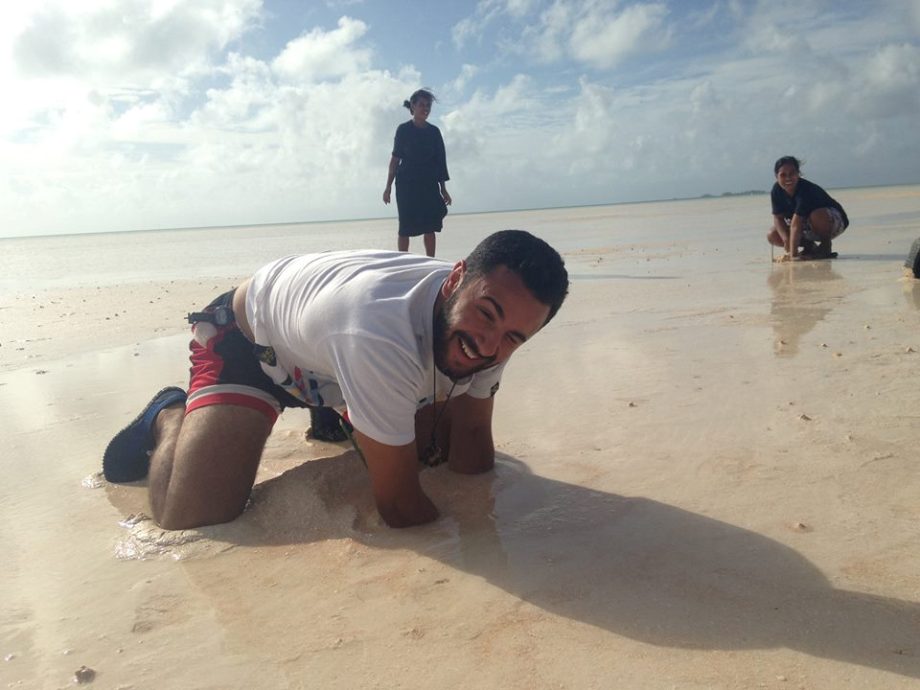
For me, and probably you, my lifestyle is quite well characterised by accessible air conditioning, hot showers, power outlets and Wi-Fi. But, I wonder how often we stop to consider the impacts of our ‘normal’ lifestyles in the global community we live in? During our 10-day cultural immersion trip I’ve had the chance to observe and hear of the very real impacts of climate change on vibrant and beautiful communities in Kiribati.
It’s interesting that the communities we visited where quite remote and self-sufficient, with little contact to the wider world. Understandably then, these villages of various sizes were almost entirely devoid of all those things that I count as bare necessities back home. Yet, they were still happy. They still enjoyed thriving community. They still found meaning and purpose day to day.
However, all of the beautiful things about communities like Bikati and Keibu (outer islands of Kiribati) face the serious and very-present threats of climate change like food insecurity and land loss. And when we reconcile the reality that such communities are often simultaneously the weakest contributors to climate change yet the most vulnerable to its impacts we see the true injustice that climate change presents.
This trip has had incredibly shaped how I view my consumption habits back home in Sydney. It’s been a great privilege to be reminded that the fight to curb our carbon emissions is really a fight on behalf of all people.
Monique:
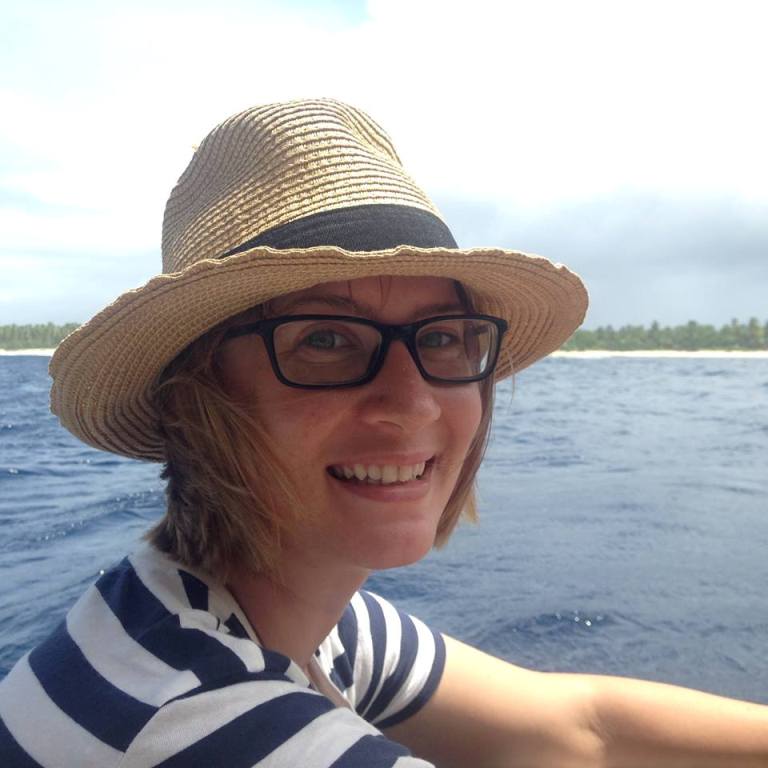
This has been such a humbling experience. I have never travelled to a place before that has made me feel as welcomed as the Kiribati people have. I woke up most mornings to the Islanders singing, followed by the largest breakfasts I have ever seen. Many of the days were filled with activities from sand worm catching to weaving hats. Afternoons were spent swimming in the ocean and a quick nap. This will be an experience I will never forget and I feel so grateful for being given the chance to learn so much from the locals.
Sarita:
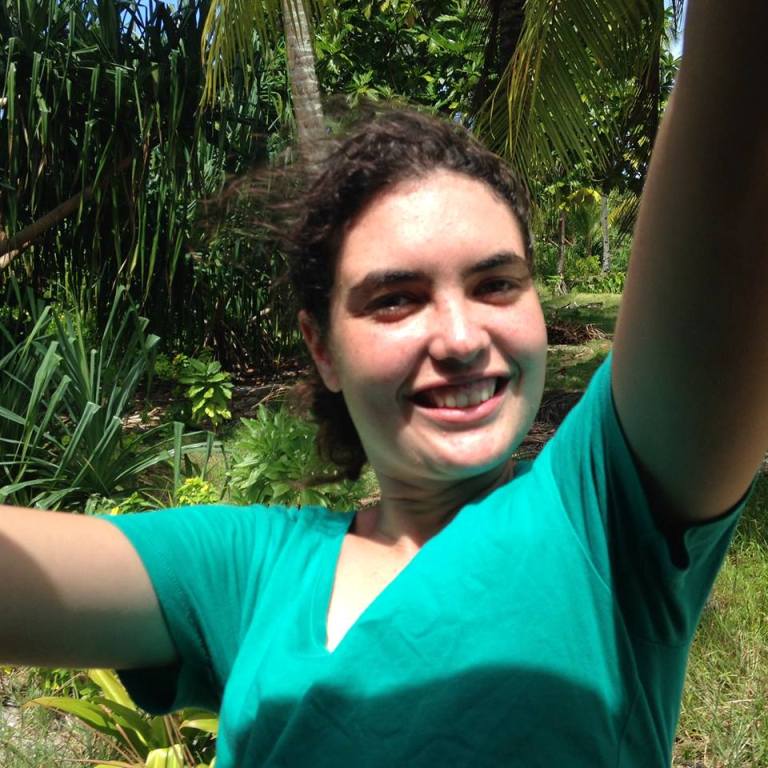
What an adventure the last few days have been! It’s been great spending time with people in the outer Islands of Kiribati, learning about their way of life and hearing their stories. There is a lot that we can learn from them! One thing I noticed is their beautiful sense of community. The way the village is structured, the way space is shared and the many celebrations all work to create this sense of community.
Another thing that has stood out to me is the injustice of climate change. The communities we have visited live incredibly sustainable lives, and although their way of life has very little impact on the environment, they are still doing all they can to live even more sustainably. Although they haven’t contributed to climate change, these communities are extremely vulnerable to it’s consequences. From listening to their stories, it is evident that they are scared and that if they lose their land that will be incredibly damaging to their culture. Trying to work out a way forward is difficult; I’ve learned on this trip how complex solutions to these kinds of problems are, and taking action while causing minimal harm is a challenge. However, I am convinced that the community members know what is best, and we need to do all that we can to keep listening, learning from them and working with them to create positive change.
Martina:
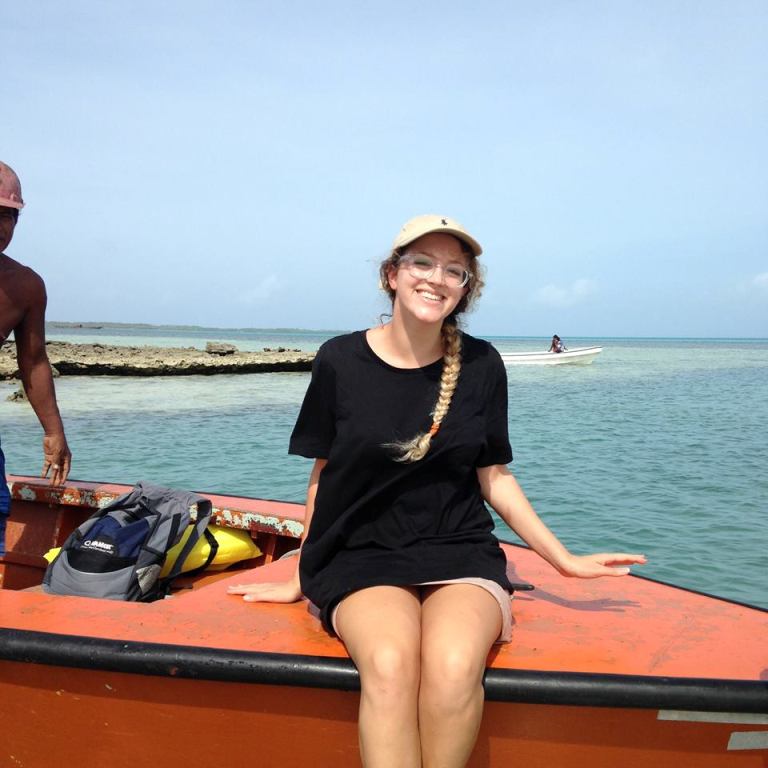
Being welcomed by the Bikati community was a very special experience for me. They accepted us like family, laughed with us, fed us ridiculous amounts and were willing to teach us everything about their lifestyle.
I thought we’d come to this beautiful island to help the people, but in fact they were the ones helping us. They helped us see the importance of community, family and tradition. They helped us understand how to be happy without the technology we were used to. They helped me gain a much broader perspective of the world. It was while living on this island that I realised that we, as students, Australians and future leaders, have a lot to learn to learn from Kiribati.
Daniel:
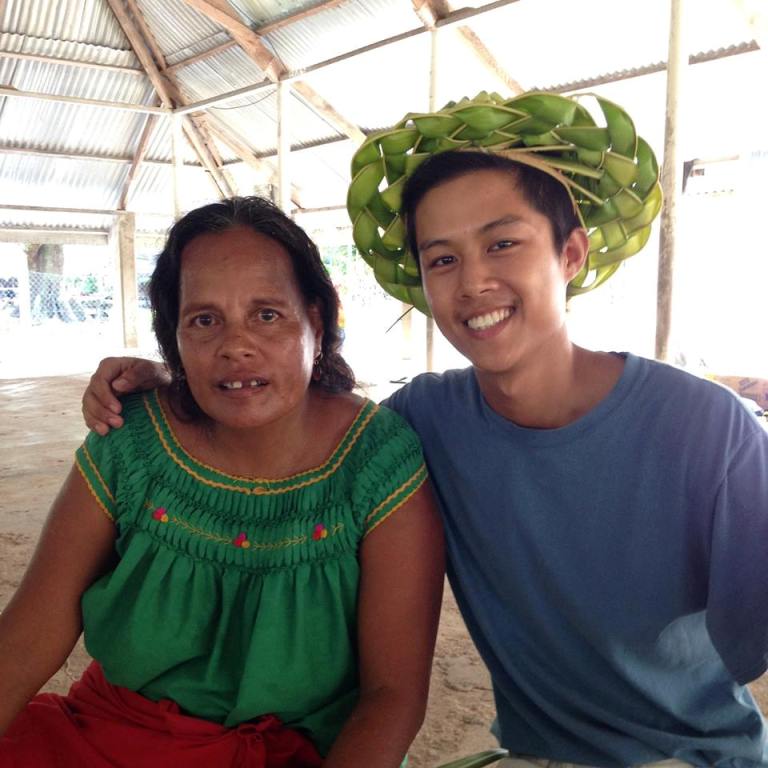
The thing that resonates with me the most from our trip to the Kiribati outer islands of Butaritai, Bikati, Keibu and Makin was the strong sense of resilience in the community. They were very warm, welcoming and they took very good care of us. Although we had only the very basic necessities, we were able to experience life the way it’s lived like a true local. We were treated to spectacular cultural dances that were unique to those islands and we also participated in dancing with the locals. It was great to talk to the local chiefs and ‘old men’ from these communities, who have spent their whole lives on these islands. They personally witnessed the changes to their islands caused by climate change over the past 50 years so they were able to speak genuinely about these issues. We were immersed in the local culture and traditions. We slept in traditional huts, ate their food, learned to weave hats and mats and also had the opportunity to trap sandworms and catch coconut crabs.
Overall, it was a fully immersive, cultural learning experience where we were able to gain a greater understanding of the impacts of climate change. By seeing these problems first hand, we hope to raise awareness in the rest of the world and develop a range of solutions to raise funds for these communities and maybe even develop a sustainable social enterprise.
Nour:
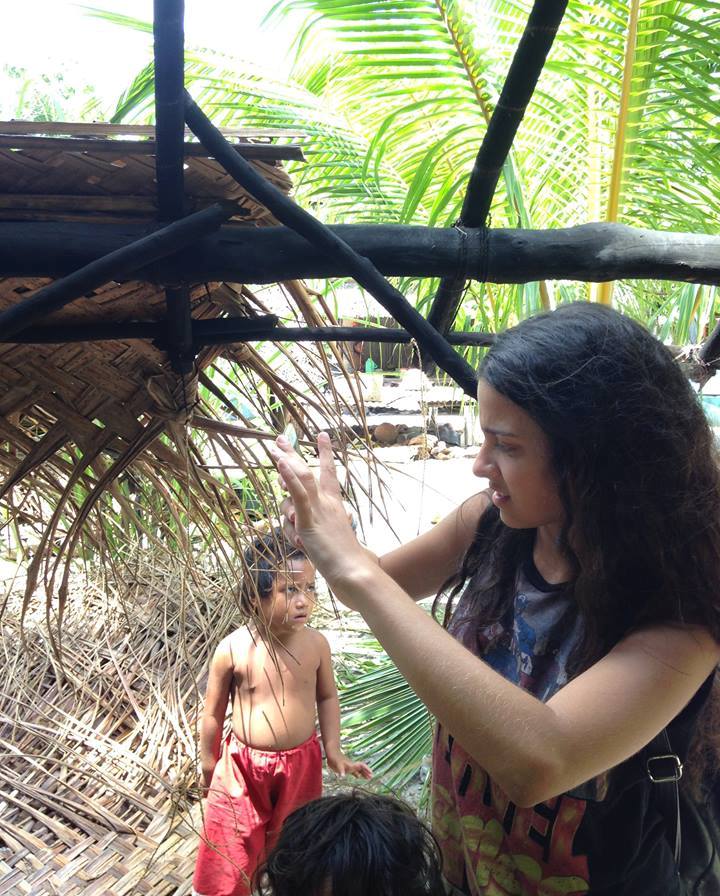
I have truly loved this trip, as I have learnt so much about culture, tradition, dancing and community. Studying architecture at @UNSW I was extremely interested in indulging myself in their design and construction techniques, in terms of how they use their natural resources from the land to build these amazing structures that work so brilliantly in adapting to the changing climate in Kiribati.
One memory that I treasure is wandering and exploring the islands and how they connect to one another. We walked from Keibu through the fossilized coral to reach the next island Makin. This was a great experience as we saw many different marine animals such as the brittle star fish, and picked up lots of nice shells and saw lots of different flora. Once we arrived we were introduced to the half spirit and half man where we asked for protection during our stay. Due to the high tide we caught a boat back to Keibu.
This was an amazing trip which I will hold onto and hopefully I will be able to find some solutions to improve the situation of climate change impacts in Kiribati. The knowledge I have gathered I will share with others in Australia.
Matt:
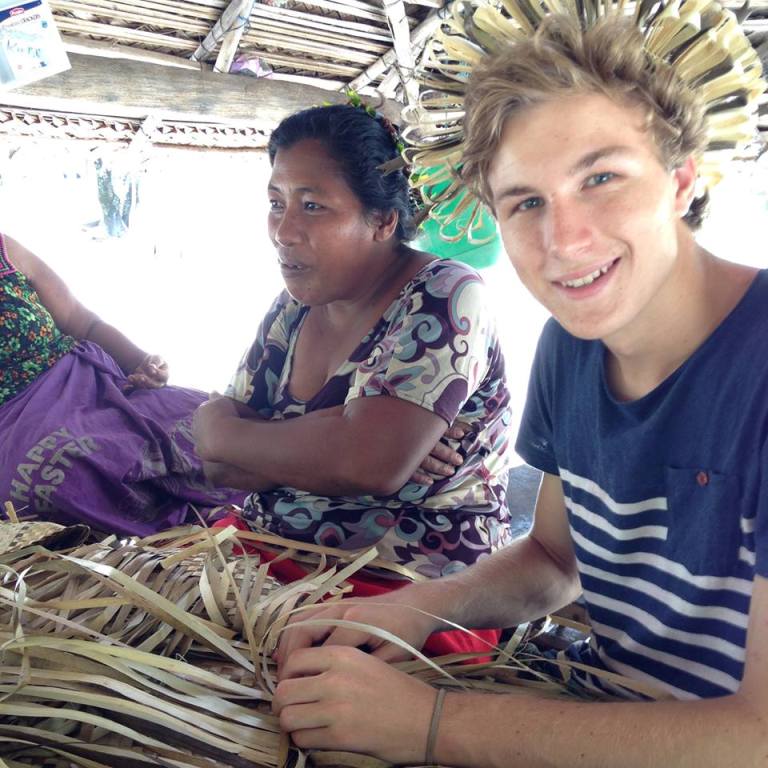
This trip was an eye opening experience that has provided me with exceptional memories that I will hold dearly and share with my family and friends when I return home to Australia. My time on the outer islands enriched my understanding of community, and this idea of culture and traditions.
One night on the island of Bikati, we ventured out through the dense jungle in the hope to find the giant coconut crabs that scurry through the land during the night. Despite our constant screaming due to the local kids hiding up coconut palms and dropping on us for a bit of fun, it was an unforgettable experience ending the night with the collection of three coconut crabs. This activity that a few of the members were involved in was definitely worth the fright and taught us this key idea of teamwork and the importance of teaching and knowledge transfer across generations. I am so thankful for being a part of this journey, and although it is coming to an end, these memories will remain with me personally for the remainder of my life.
Erica:
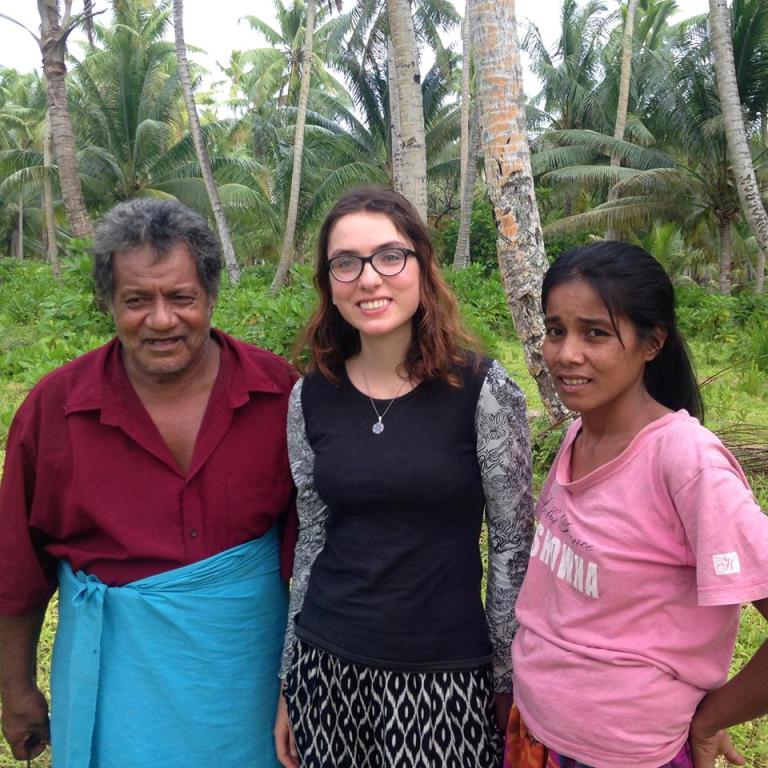
I had such an incredible experience in Kiribati; words cannot describe the way that my eyes have been opened to the resourcefulness and sustainability of the Kiribati people. To understand the deep connection between the land and people of Kiribati is something that is unique and beautiful as the islands of Kiribati. I had some incredible experiences by opening myself up to being more spontaneous and going literally ‘walkabout’. This meant talking to locals about their traditions and customs at opportunities where I found myself able to just sit and chat.
One particular experience took me on an exploration of the flora of Bikati with a young mother named Eteere. I was able to discover the many uses of the natural plants for medicinal purposes. I learnt about the nutritional benefits of Te Non, which is a fruit that is used across the Pacific for many different purposes, including diabetes. It was incredible to be able to see this plant, to feel its leaves, to touch the fruit and to listen to Eteere speak passionately about it. This made me realise that there is so much knowledge that is in danger of being lost if we do not take action to mitigate the effects of climate change on these unique islands.
It has been wonderful to have these experiences, and I really feel that the more spontaneous and organic our relationships with others, the better. I have really come out of my shell, so to speak. These islands may be considered some of the most remote places in the world, but to be honest, they are some of the most connected communities that I have ever been privileged to come into. No WOman is an island entire of HERself; that quote by Thomas Moore has never rung more true for me. With a little bit of openness and a lot of patience, you never know what fortunes will come your way in Kiribati.
Jono:
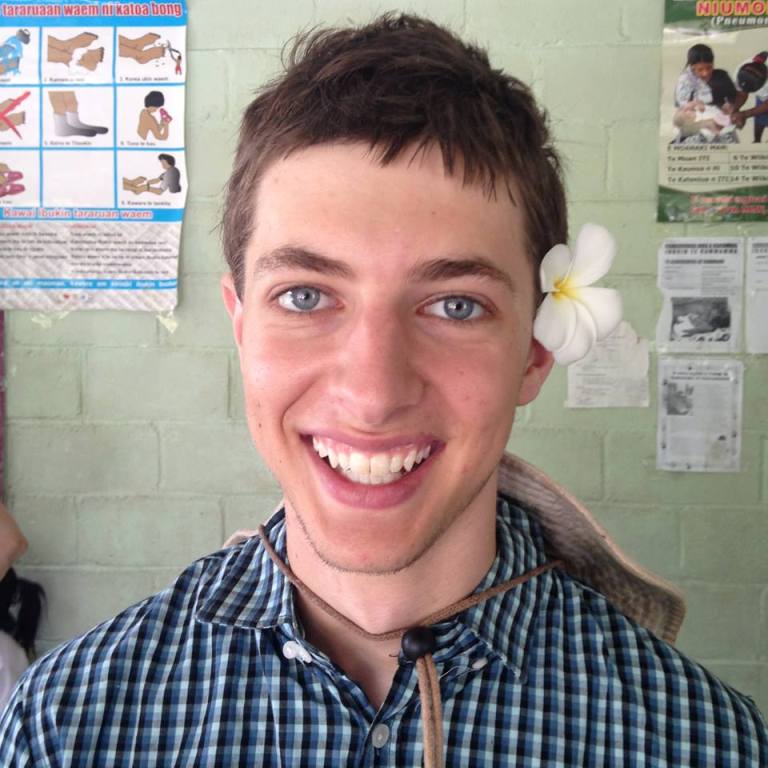
Perhaps what I find myself most struck by from my interactions with the people of Kiribati is how happy they are to live in their place, and how proud they are of the communities they live in. The saying “It takes a village to raise a child” is very much shown to be true in Kiribati, especially in the outer islands where everyone knows everyone due to their proximity of living together.
Coming in to the trip, part of me was resigned to the fact that the population of Kiribati would have to be relocated, and I was concerned about loss of culture and identity due to living away from their true home. However, now that I have conversed with some local people, heard their passion, seen their resourcefulness and experienced their resilience, I am convinced that, given the opportunity, the I-Kiribati people are capable of preserving their beautiful land. It’s our job to provide that opportunity.
Natalie:
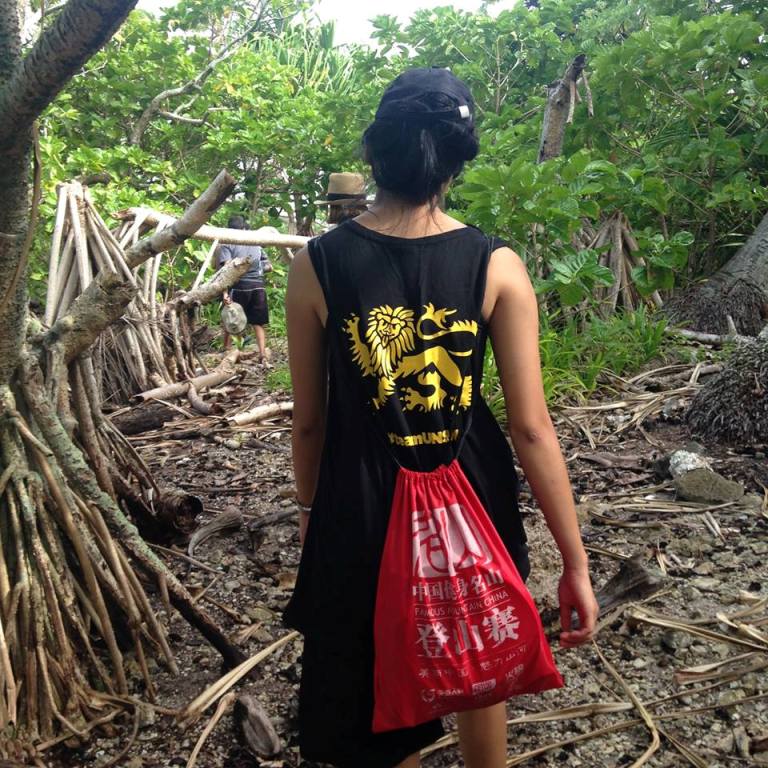
My experience at the outer islands of Kiribati was a unique opportunity which I will never forget. Never have I felt so welcomed by the local people, never have I witness such rich culture and traditions through dance and song, never have I understood the attitude of not being defeated and never have I been able to share such experience with 11 others awesome students. Visiting the islands, the problems of climate change, water quality and food security were all visible but in the face of it the local people don’t feel defeated. They have hope, they believe in their ability to innovate and reuse resources and it is something that I took away from my amazing experience in Kiribati.
Simone:
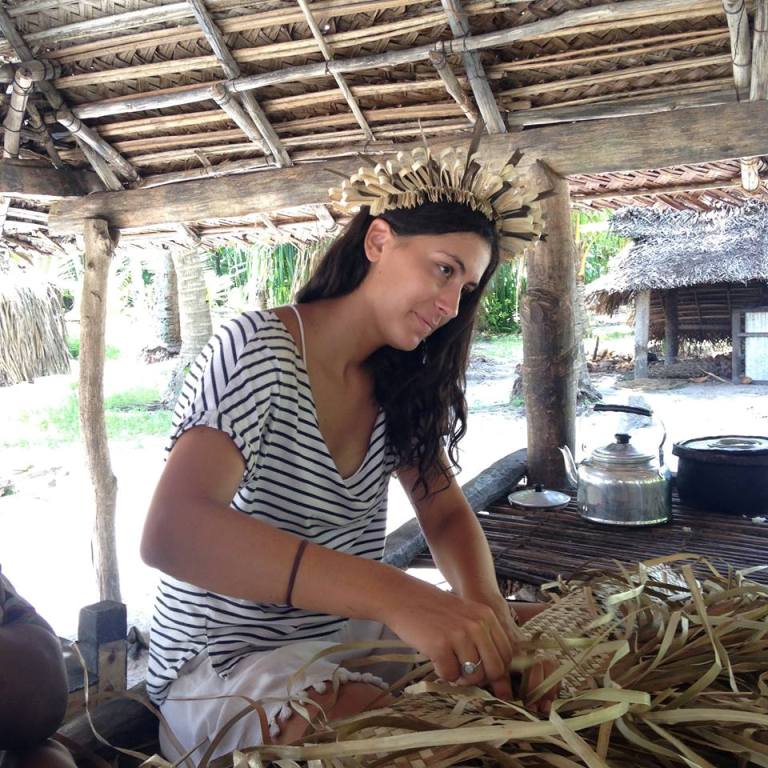
Immersing myself in Kiribati’s culture and traditions was a truly enlightening experience that enriched my learning and education. I have a strong love for passion, culture, adventure, learning and dance, which was encompassed in every activity I participated in. Personally, I gained a greater understanding of the islands’ way of life and how the community functions as one. There were many memorable highlights throughout the trip especially when we went to visit the schools. Watching the kids so enthusiastically learn and interact with the teacher/each other was very engaging and interesting to be a part of. I found it very remarkable how similar their curriculum was to ours. Despite only having basic tools, local teachers are still able to teach the children important educational lessons to help benefit their future.
I have been lucky enough to be part of such an enriching and immersive trip, which opened my eyes up to the beauty of culture and tradition evident in the Kiribati society. Having seen their conditions and taking part of their day-to-day life I have noticed many problems, which I hope on my return, I can help develop solutions for. Kiribati is a beautiful network of islands that holds some of the world’s greatest treasures, traditions and sense of community that must be protected from environmental and social impacts.
Lilliana:
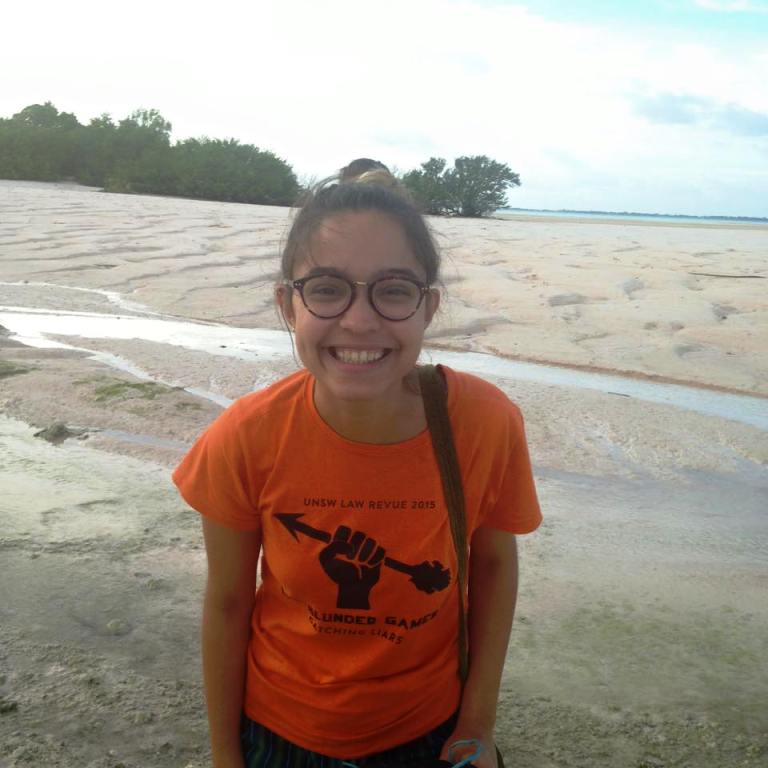
People live really simple lives, and yet they are extremely happy. I've learned so far that the notion of 'time' it is a purely western concept. Here, it doesn't matter if you are late or if you didn't finish a task on a certain day. Eventually things will happen. Maybe we should adopt this 'island time' an learn to relax. For us, time equals money and money equals happiness. Things shouldn't be like this.
Being in Kiribati has been an amazing experience. Not only did we learn about community experience, hard work and how to be happy by living a simple life; but also about how to work in a team effectively. One of my best memories involves all of us having to come up with several artistic performances to entertain the people at the villages where we were staying.
Every second night, the old men of the villages will throw a party, or as they call it a “Botaki”, to either welcome us or tell us good-bye. They demonstrated their traditional dances and singing, but also requested us to show what we have to demonstrate. In this situation, there was no way we could say no.
In one of our lunch meetings we decided to come up with a singing performance. Everyone just joined in without complaining or refusing to participate. We ended up creating a mash up of some songs of ‘The Lion King’ and ‘I will survive’. Despite our lack of practice, we got up later that night and performed. The entire village laughed and clapped! We couldn’t believe what had just happened but we were so happy that we got to do it.
That was not the end though. We also created some pretty sick choreographs. Some of them rehearsed, and some others were created on the spot. We danced to Jessie J’s ‘Domino’, ‘La Macarena’ and ‘Nut Bush’ to the beat of ‘Happy’ by Pharrel Williams and even the ‘Hokey Pokey’. In the end, it didn't matter if we were terrible or not. What mattered was that we got the task done and had fun while doing so.
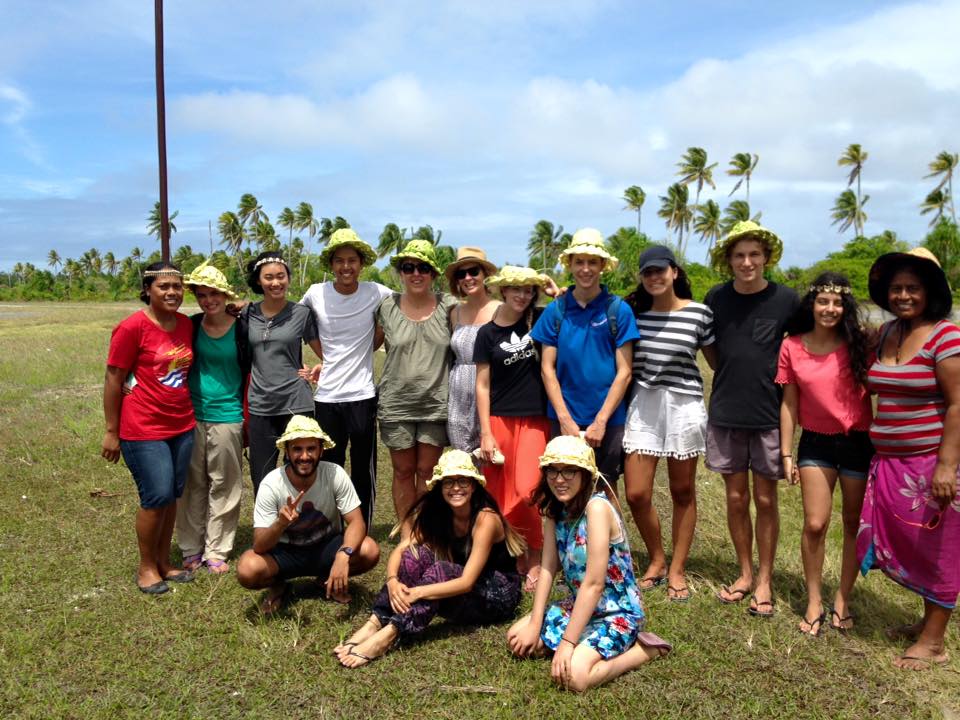
Island Innovation Lab students with program organiser Selena Griffith (back row, fourth from left) in Kiribati.
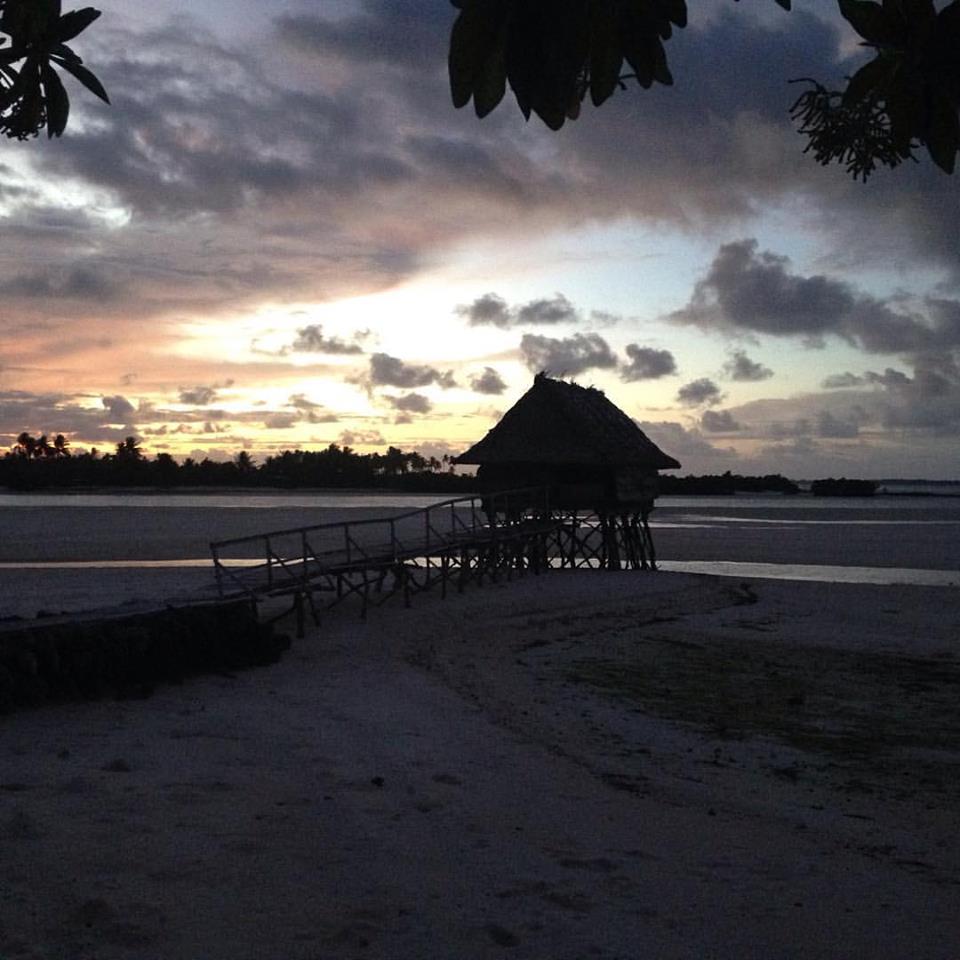
5.45 to walk Broken Bridge through villages in North Tarawa Kiribati - Sunrise at North Tarawa